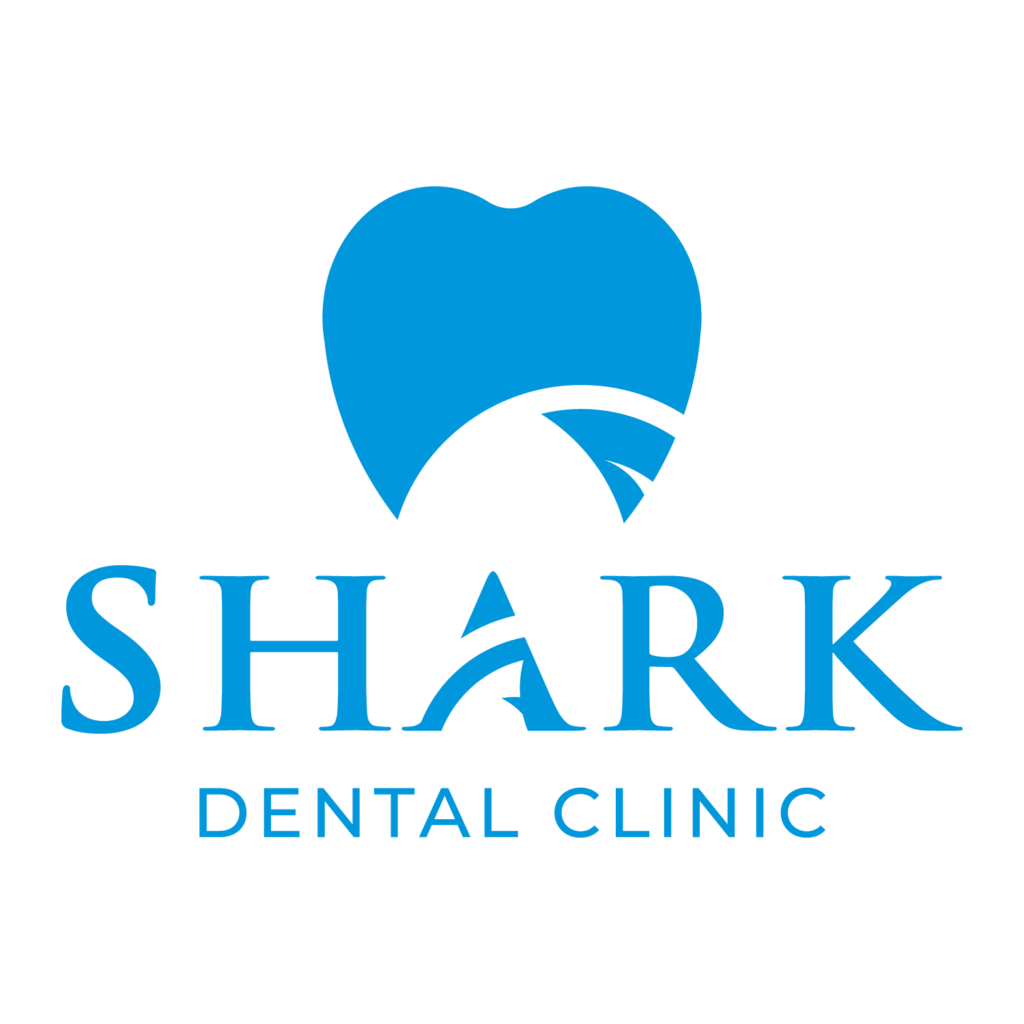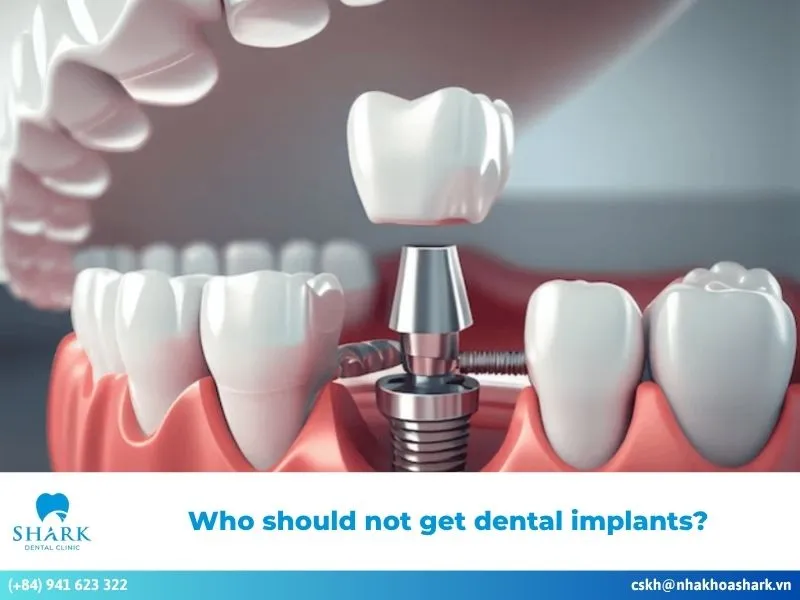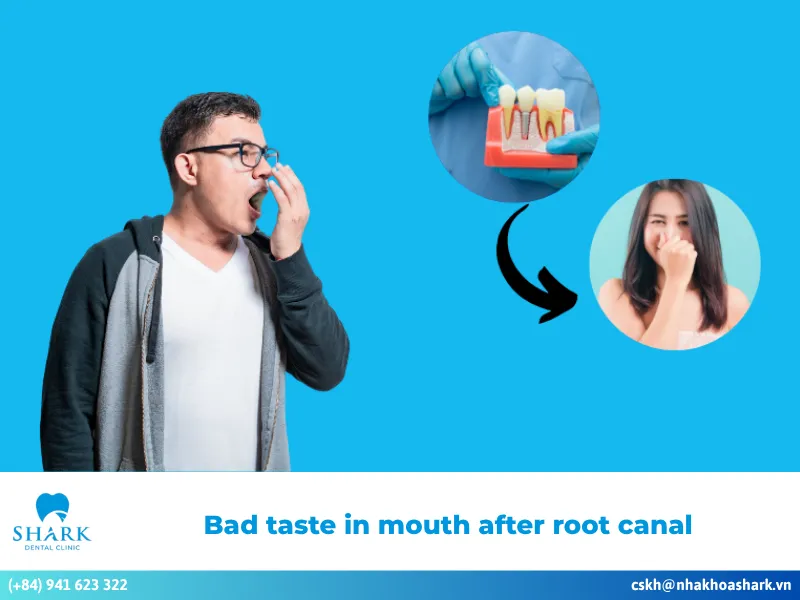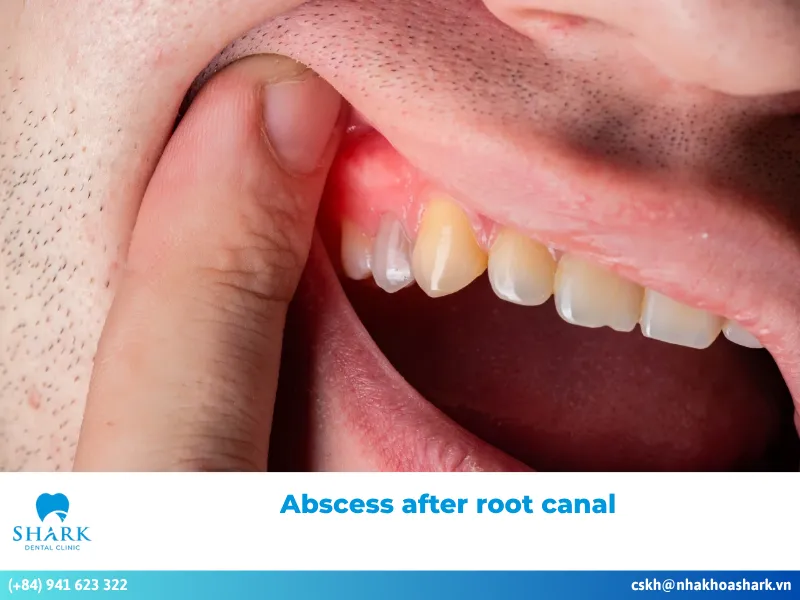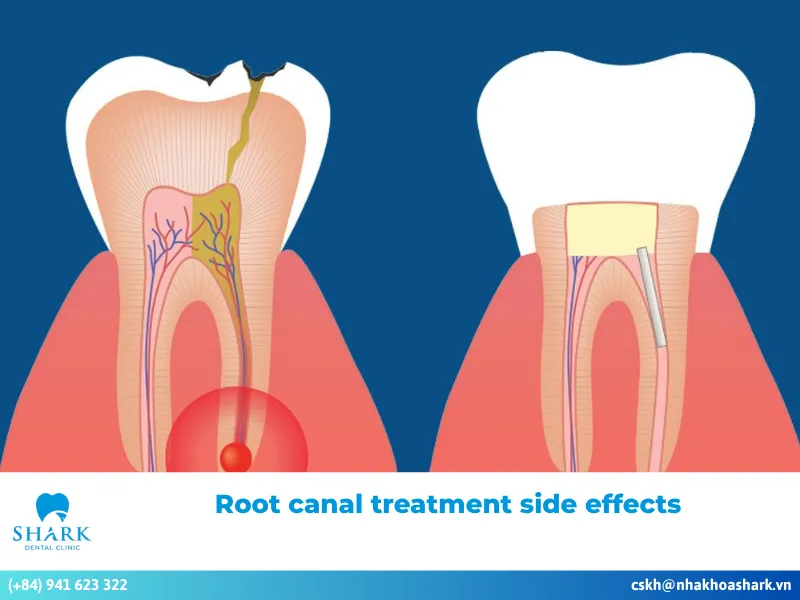Many people feel anxious about root canal therapy because the procedure can be lengthy and uncomfortable. As a result, potential patients often ask, “Do you get put to sleep for a root canal?” To provide a clear answer, let’s explore the details with Shark Dental Clinic in the article below!
Do you get put to sleep for a root canal?
In most cases, the answer is NO; patients do not receive general anesthesia for a root canal. Instead, local anesthesia is typically sufficient to manage pain throughout the entire procedure. This method numbs only the area around the tooth, allowing patients to remain awake and alert. This is beneficial, as it enables the dentist to monitor the patient’s comfort and maintain easy communication during treatment.
Local anesthesia is generally considered safer than general anesthesia, has fewer associated risks, and minimizes potential side effects, especially for patients with underlying health conditions. However, in certain circumstances, your dentist may recommend sedation to enhance safety and comfort during the procedure.
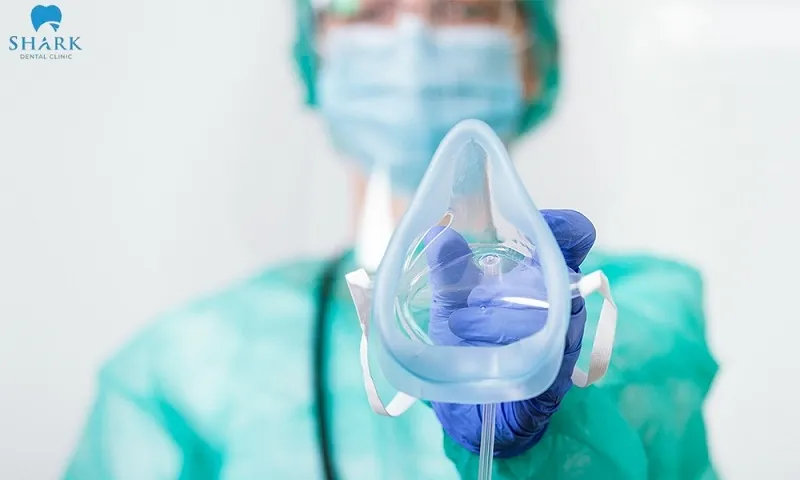
When is sedation necessary?
Sedation is usually reserved for specific situations where local anesthesia alone may not be effective or appropriate. Common scenarios that may require sedation include:
- Severe anxiety or dental phobia: For patients who experience overwhelming fear or emotional instability that could hinder treatment.
- Strong gag reflex: Sedation may be beneficial for individuals who have a heightened sensitivity and are prone to gagging during dental procedures.
- Chronic health conditions: Patients with conditions like heart disease or high blood pressure may benefit from sedation to ensure stability throughout the treatment.
- Ineffective local anesthesia: In rare instances where local anesthetics do not adequately numb the area, sedation offers an effective alternative for pain management.
- Complex dental procedures: For extensive treatments or lengthy implant surgeries, sedation can enhance comfort and efficiency.

Comprehensive sedation options for your root canal experience
During root canal treatment, dentists may use various forms of sedation to maximize patient comfort and ensure safety. Here are some commonly used methods:
Nitrous oxide sedation (Laughing gas)
This involves inhaling a mixture of 50–70% oxygen and about 30% nitrous oxide through a mask. It induces relaxation, reduces anxiety and discomfort, while allowing patients to remain awake. After the treatment, patients can safely drive themselves home.
Oral sedation
The dentist may prescribe medications such as triazolam (Halcion) or diazepam (Valium) to be taken about one hour before the procedure. Oral sedation provides deeper relaxation than nitrous oxide and may cause drowsiness, but patients typically remain responsive when spoken to or lightly touched.
Intravenous (IV) sedation
This method involves administering medication directly into the vein, allowing patients to quickly enter a drowsy state and remain pain-free during the treatment. IV sedation is particularly beneficial for complex procedures or for patients who experience significant anxiety.
Patients should be aware that the sedative effects can last several hours after the procedure. Therefore, it is essential to have a family member or companion accompany them home.

Notes on anesthesia for root canals
While sedation and anesthesia make root canal treatment gentle and nearly painless, patients should consider the following key points:
- Avoid alcohol and stimulants: Consuming alcohol, stimulants, or recreational drugs before and after a procedure involving anesthesia can interfere with its effectiveness and dosage.
- History of allergies: If you have experienced allergic reactions to anesthesia or any medications in the past, inform your dentist beforehand. This will allow for the selection of the safest sedation method.
- Duration of effects: Sedatives and anesthetics are effective for a limited time. Once their effects wear off, you may experience mild discomfort. In such cases, your dentist may prescribe light pain relievers for relief.
- Post-procedure activities: Sedation can temporarily impact your memory, reflexes, and concentration for several days. Ensure that you have someone to care for you and assist with daily activities after the procedure.
- Open communication with your dentist: Always discuss your medical history, level of anxiety, and pain tolerance with your dentist. This information will help them choose the most appropriate and safest anesthesia method for you.

With this guidance, you now have a clear answer to the question: “Do you get put to sleep for a root canal?” At our Shark Dental Clinic, your safety and comfort are our top priorities. To ensure the most effective and secure treatment, we encourage you to consult your dentist for personalized advice on the sedation method that best suits your needs.
>>> See more: Root canal treatment costs in Ho Chi Minh City


